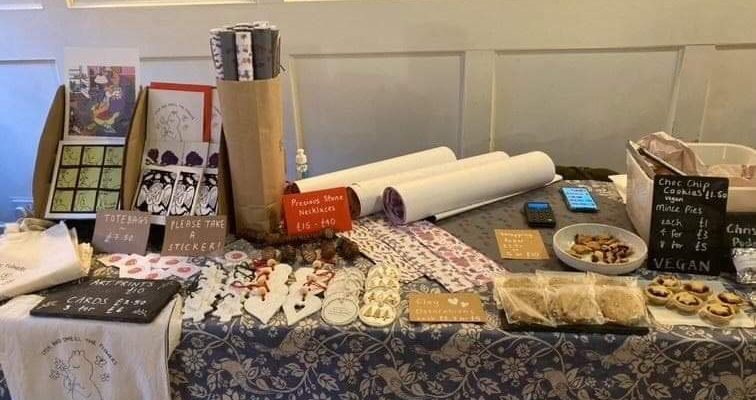The United Kingdom’s economy has been decimated by the pandemic, with over 700,000 job losses. Despite this, there has been an upsurge of small businesses.
In fact, 95,000 new businesses alone were registered between July and September 2020.
As a result of non-essential businesses having to adjust to lockdown restrictions, the demand for online, independent stores has soared.
One of these new entrepreneurs is Amy Hann, 18, who left school and began working at a local pub. Soon afterwards she was inspired to pursue her ambitions of becoming an artist.
Thus, she quit her job, after the first lockdown, to launch her company AH Illustration.
She said: “Leaving my job as a waitress in a pub during the pandemic was a difficult action to take as I knew it would come with the challenge of having to be more self disciplined.
“I am happy I made the decision to pursue and focus on my art during this time however as it gave me the opportunity to put more energy into making art my job.”
Social media is a key part of reaching and selling a brand to consumers.
Websites such as Instagram and Etsy use algorithms to match customers to products they’re likely to be interested in.
A tool which could help to explain the 30% growth in UK retail ecommerce.
In addition to newcomers who have started online only businesses, it’s also been a chance for business owners to expand to new markets.
Elaborating on this further, Amy said: “Prior to the pandemic I hadn’t used the internet as a tool for selling my art; and I found that Instagram was a great platform for marketing and documenting my art and solidifying myself as a small business.
“Through Instagram I saw many other creators were selling prints through Etsy and I quickly followed suit.
“I think having an online business is great as a creative. Particularly during a pandemic where word of mouth has become dampened by social distancing. It’s great as it gives you a place to share and promote to those who might not have seen you otherwise.”
Artists who sell their wares at market stalls and craft markets are still attempting to work around social distancing measures.
Prior to the lockdown, Cardiff hosted a weekly market in addition to its historic Cardiff indoor market.
Both of these have seen a loss in ‘foot traffic’, which has led to some going out of business.
Amy herself, used to sell at these as a way of furthering her business aspirations.
She said: “I used to sell my wares at the craft market, which was well attended considering the social distancing measures that were in place, as well as the requirement to wear face coverings.
“Unfortunately, scheduled markets did get cancelled and this did affect my earnings as I had made sure I had enough stock for the markets that were planned.
“Having already set up my business online I felt lucky to be able to transition into using my online marketplace.
“However, I am sure many other artists were negatively affected who did not have this resource. As well as many self employed artists, particularly around the festive period where it is usually very busy as these are their most profitable time.”
This growth of small businesses has been accompanied by changes in shopping habits and how people consume.
Nevertheless, with every boom comes a bust, according to the Federation of Small Businesses (FSB).
They predict that 50% of small businesses could face closure without further financial support.
Mike Cherry, head of the FSB said: “The development of business support measures has not kept pace with intensifying restrictions.
“As a result, we risk losing hundreds of thousands of great, ultimately viable small businesses this year, at huge cost to local communities and individual livelihoods.”


 Lockdown: The reality of training to be a teacher during COVID-19
Lockdown: The reality of training to be a teacher during COVID-19